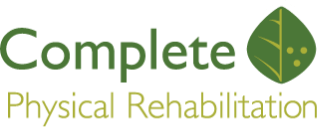Around this time of year, all my running clients begin to pick my brain regarding their own nutrition in preparation for race season. What I try to stress to everyone is the following: only a very small percentage of the running population can be considered professional runners. The vast majority of runners fall into the category of “The Enthusiast”.
For this group, I personally don’t feel that it is necessary to fashion a super strict diet where you’re constantly tracking every single carb and calorie. For the enthusiast runner, I try to stress 5 main areas:
Hydration
This one is pretty obvious. Always keep hydrated during the day. Under-hydration can lead to in-race or in-training cramping of muscles. Overall I like the following article’s equation on calculating how much water you should be drinking throughout the day.
So let’s take a 160 lb person. Using their equation, the water intake per day should be the following:
-
Water requirement (75% of body weight for active individuals): 120 oz
-
Add for strenuous exercise (+16 oz): 136 oz
-
Divide by the average number of hours awake per day (assume 16 hrs): 8.5 oz
So, on average, this active runner should be consuming 8.5 oz of water on average per hour. In addition to this equation, I encourage my runners to get in the habit of weighing themselves pre- and post- run. If you are 100 lbs pre-run, and 98 lbs post-run, you should consume 16 oz of water (2 lbs) to replenish the lost weight from your run.
However, this does NOT mean to just keep taking fluids all day long. Over-hydration can be just as detrimental as under-hydration. Over-hydrating yourself can lead to an overworking of the excretory system to expel the excess water. Side effects of over-hydration can also including bloating and a physical feeling of being weighed down
Maintain Electrolytes
Gel packs during a run have become a popular method of making sure that you have enough electrolytes. Gatorade after a run has also been a tried and true method of replacing electrolytes in the body. If you’re a profuse sweater, it is even more essential to be aware of electrolytes.
Your Diet
As I stated, for enthusiast runners, I don’t really feel the need to be overly strict with your diet. I try to stick to general rules to guide you. Stick to low glycemic index foods (example, wheat pasta as opposed to white flour pasta). These foods burn longer over the course of a day, providing you with consistent energy levels, as opposed to high glycemic, high sugar foods, which cause spikes and dips in energy level. Try also to eat low glycemic index foods in the evening before race time to ensure that you’re properly burning them off during the race the next morning.
Lay Off Red Meat
Stick to lean turkey ground or lean chicken breast for protein. Red meat takes too long to digest and slows body’s ability to process other carbohydrates prior to a race.
Don’t Dive Into Food and Water After A Race
Post race/marathon: take in little bits of liquids and nutrition slowly. Don’t dive into a big steak right after a race as your big reward. My suggestion is little sips of water, little bits of food, every 15-to 30 minutes. After a race or marathon, the body is exhausted. You want to slowly give the body the nutrition it needs without overworking the body even more by overeating.
Remember, for you enthusiast runners out there, odds are that you still have to be ready for the work week. You want to make sure that you’re efficiently recovering so that you don’t end up physically suffering from the Monday morning blues!
Happy running to all!
Dr. James Pumarada is a Physical Therapist and co-owner of Complete Physical Rehabilitation, a Physical Therapy practice based in Elizabeth and Jersey City, NJ. As a Sports Therapy Certified Specialist, he has been specifically guiding and training runners of all experience levels for over 15+ years.

